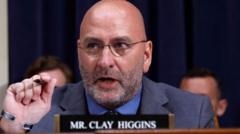What Keeps Illegal Alcohol Sales Thriving in India's Poorest State?

Published: 2025-11-19 02:00:26 | Category: world
The ongoing alcohol prohibition in Bihar, India's poorest state, raises critical questions about its effectiveness nine years after its implementation. A combination of rampant black market activity, enforcement challenges, and a complex socio-economic landscape complicates the ban's intended benefits. Despite the law being touted as a social reform, its efficacy remains under scrutiny as illegal liquor production and consumption persist.
Last updated: 15 October 2023 (BST)
What’s happening now
As Bihar grapples with its alcohol prohibition policy, recent events highlight ongoing challenges in enforcement and the persistent availability of illegal liquor. Despite the state government’s claims of success, the reality on the ground reveals a thriving black market and significant gaps in law enforcement. The recent state elections have reaffirmed the commitment to prohibition, but the effectiveness of such measures remains in question.
Key takeaways
- Bihar's alcohol ban, enacted in 2016, aims to curb addiction and violence but faces enforcement challenges.
- Over 1.1 million cases have been registered since the law took effect, primarily for consumption rather than production.
- Illicit alcohol worth over £4.96 million has been seized in recent months, indicating a thriving black market.
Timeline: how we got here
Since the introduction of alcohol prohibition in Bihar, several key milestones have shaped the current landscape:
- 2016: The Bihar government, led by Chief Minister Nitish Kumar, enacts a statewide ban on alcohol.
- 2022: A notable increase in deaths linked to toxic liquor raises concerns about illicit production.
- October 2023: Reports emerge of ongoing enforcement challenges and a thriving black market for alcohol.
What’s new vs what’s known
New today/this week
Recent raids on illegal distilleries have highlighted the ongoing challenges in enforcing the alcohol ban in Bihar. Officials have reported significant seizures of illicit alcohol, yet the persistence of these operations suggests a deep-rooted problem that enforcement alone cannot resolve.
What was already established
The Bihar alcohol prohibition law, while aimed at reducing addiction and improving social conditions, has faced criticism for its ineffectiveness. High conviction rates for minor offences and the continuous availability of alcohol in the black market underscore the policy's limitations.
Impact for the UK
Consumers and households
For UK readers, the situation in Bihar serves as a cautionary tale about the complexities of prohibition. While intended to safeguard public health and safety, such measures can lead to unintended consequences, including the rise of illegal markets that compromise consumer safety.
Businesses and jobs
In Bihar, the prohibition has not only failed to eliminate the alcohol trade but has also impacted local economies, leading to losses in potential tax revenue. This situation mirrors challenges faced in various regions where similar bans are enacted, affecting overall economic stability.
Policy and regulation
The ongoing policy in Bihar represents a broader debate on alcohol regulation and public health. As the state government continues to uphold prohibition, the effectiveness of such regulations may prompt discussions on alternative approaches to managing alcohol consumption.
Numbers that matter
- 1.1 million: Total cases registered under the alcohol prohibition law since 2016.
- 650,000: Number of individuals convicted, primarily for consumption offences.
- 522 million rupees: Value of illicit alcohol seized in the lead-up to recent elections.
Definitions and jargon buster
- Prohibition: The legal prevention of the manufacture, sale, and consumption of alcohol.
- Illicit liquor: Alcohol produced, distributed, or consumed in violation of laws.
- Bootlegging: The illegal production and distribution of alcohol.
How to think about the next steps
Near term (0–4 weeks)
In the coming weeks, it will be crucial to monitor the Bihar government's actions regarding enforcement and any potential policy adjustments in response to the ongoing challenges with illegal liquor.
Medium term (1–6 months)
As the government remains in power, observers should watch for potential legislative changes or increased funding for enforcement efforts aimed at curbing the black market.
Signals to watch
- Reports of alcohol seizures and arrests related to the illegal liquor trade.
- Public opinion on the effectiveness of prohibition and its socio-economic impacts.
- Any announcements regarding changes in state policy or law enforcement strategies.
Practical guidance
Do
- Stay informed about local laws and regulations concerning alcohol consumption.
- Support initiatives that promote responsible drinking and awareness of alcohol-related issues.
Don’t
- Engage in or support illegal alcohol trade or consumption.
- Ignore the social issues surrounding alcohol abuse, especially its impact on families.
Checklist
- Understand the current alcohol laws in your state or region.
- Participate in community discussions about public health and safety.
- Educate others about the risks associated with illicit alcohol consumption.
Risks, caveats, and uncertainties
While the prohibition policy aims to address alcohol-related issues, its implementation is fraught with challenges. The persistence of illegal markets raises questions about the law's effectiveness and potential unintended consequences, such as health risks associated with unregulated alcohol. Furthermore, reports of collusion and corruption among enforcement officials suggest that without addressing these issues, the ban may not lead to the intended improvements in public health and safety.
Bottom line
The ongoing debate surrounding alcohol prohibition in Bihar highlights the complexities of enforcing such policies in a socio-economically diverse environment. While there are claims of positive impacts on family finances and social well-being, the prevalence of illegal liquor trade raises questions about the overall effectiveness of the ban. As the state government remains committed to prohibition, finding a balance between enforcement and addressing the root causes of alcohol abuse will be essential for genuine progress.
FAQs
What are the main objectives of Bihar's alcohol prohibition?
The primary objectives of Bihar's alcohol prohibition are to reduce addiction, domestic violence, and financial burdens on families, particularly among the state's poorest populations.
How effective has the alcohol ban been in Bihar?
While the ban has resulted in numerous arrests and seizures, the effectiveness is undermined by a thriving black market and ongoing illegal production of alcohol.
What are the consequences of illicit alcohol production?
Illicit alcohol production can lead to serious health risks, including poisoning from toxic brews, as well as social issues such as increased domestic violence and family instability.



